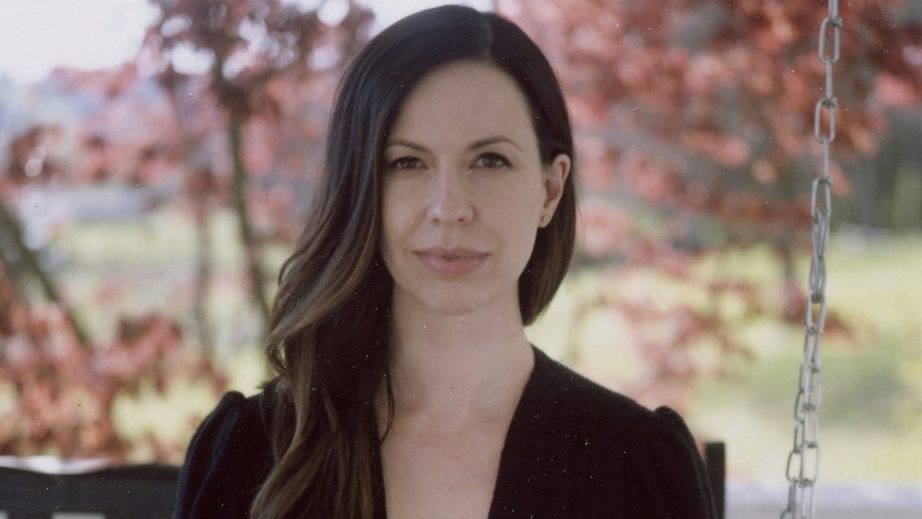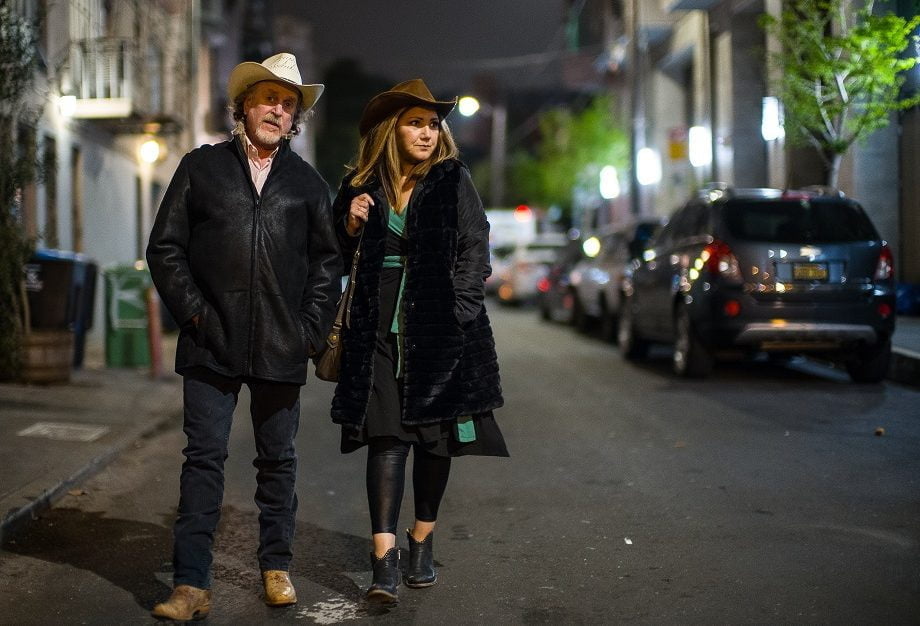Joy Williams embarked on quite the journey to get to her new solo album Front Porch. On the title track, she sums it up best, singing, “I took the long way looking for the shortcut/ To find out that this place was made of the best stuff.” After the Civil Wars broke up in 2014, she left Nashville and headed west to California with her family. The distance felt necessary: It served, on the one hand, as a chance to clear her head after the dissolution of a creative partnership, and on the other as an opportunity to spend with her dying father.
When she released 2015’s VENUS, her first solo project to follow her duo work, she purposely went for a different sound, as if she wasn’t fully prepared to inhabit the style long circulating around her voice and songwriting. Front Porch is a return to form in more ways than the title implies. She moved back to Nashville, and began writing in a more honest fashion about love, desire, and the flaws that people may try to run from but which make them perfectly imperfect. Partnering with The Milk Carton Kids’ Kenneth Pattengale as producer, Williams burrows into a roots sound that is as sparse as it is reverent, her voice so clear and comfortable it’s an invitation for one and all to gather on the porch.
VENUS took you in new directions than what listeners have typically heard from you, while Front Porch feels like a return in many ways. Why was it time to make this project in particular?
VENUS was a by-product of having to cleanse my palate, so to speak. After [the Civil Wars] officially split, I felt a little claustrophobic in Nashville. I realized once I was [in Venice Beach] I was still bringing everything that I was processing with me; the music was an expression of me needing to literally lift out of the space I had inhabited for a while in order to gain some clarity. I left the holler, as it were, to go find a different space for myself in order to clear my mind and heal, because there was a lot to heal from. And I did that.
VENUS certainly felt like a heavy record despite the pop production.
I was also on the West Coast because my dad was dealing with terminal cancer. I wanted to be close to him as he was in the process of passing away. That record, you can hear some heaviness, but there’s a determination to fight and continue on. Once my dad passed away, there was this sense of “Why are we still in Venice Beach?”
So you returned to Nashville?
We came back to the house that never sold and started again. It felt like a whole new chapter. For me, it felt like a return that was really important—to community, and to myself, and to no longer being afraid to make the music that was really inside of me all along, and to actually enjoy and embrace the sound that came from the front porch, which became my guard rails for writing. After everything I’d lost in those past few years, I realized it’s really the simple things that matter the most, to me anyway. I wanted to make a record that reflected that.
In ending VENUS with “Welcome Home,” did you already see yourself pointing in the direction that became Front Porch?
Yes, absolutely. Doesn’t that happen so much in our lives anyhow? We give ourselves away before we move in that direction.
The body knows before the brain does.
Yes, I’m a huge believer of what I call the animal body or the animal instinct. I don’t mean that in the barbaric sense, but in the deepest wisdom.
And what wisdom did you gain?
I felt like in the process of writing this record — which was a slow and steady process — I was also coming to terms with embracing who I am, and learning to love the scars and the bruises and the bumps along the way, realizing that’s what makes people ultimately beautiful and interesting. I’m a recovering perfectionist from a conservative family. Unraveling those things lead to more spaciousness within me, and a deeper gratitude for everything I’ve gone through — the tough shit and the highs as well.
It’s interesting that you say you’ve come to terms with the scars and bruises because you sound so comfortable on Front Porch, like you’ve rediscovered something about yourself.
As I’ve hopefully grown over the years, I’ve become more aware of my coping tricks, and learning to lovingly dismantle those, if I’m able, and also to treat them all with an open curiosity. That rootedness and groundedness within me really began influencing a lot of things in my life, music being one of them. On top of all of that, I was newly pregnant with our daughter Poppy — I knew I was pregnant, but I didn’t know I was having a daughter at the time — and really sick while recording that record. There was a part of me that asked, “Should I postpone the recording?” I thought, “No, this is the prime time to do this because I’m going to sit on this stool and sing.” I don’t care if this comes out perfectly, I just want it to be as honest as it possibly can be. It was the most joyful experience I’ve ever had in the studio, and I’ve been doing this since I was 17.
I’m sure that’s not how any artist would plan that process, but what comes out ends up being its own kind of perfection.
Right. We recorded 15 songs in five days. The process for that was really a product of Anthony da Costa and I on my green velvet couch rehearsing these songs, just guitar and voice. The purity of that and the ability to focus on the performances allowed for an organic experience.
I was particularly taken with the vocal chorus that shows up on “Trouble With Wanting,” and how it plays into that idea of the power in gathering. What prompted the choice to include it?
I really love the idea of the front porch because you can gather out there with yourself — you can commune with yourself out on the front porch — or you can bring a best friend, or at least on my porch you can bring 8 to 10 people. There’s always a beautiful energy with any one of those configurations. With “Trouble,” that song felt like such an open conversation. I wrote it with my friend Natalie Hemby when we were talking about the devastation of desire, and what it’s like to have those moments where you go, “If only that person….”
I’d had a conversation with my best friend who’d had an on-again, off-again relationship with someone for 10 years, and I thought, “God, every one of us has been through some kind of version of this heartache and longing.” The experience of desire and that universal sense that many of us can relate to, it felt like it begged for group vocals. We did that all live. Kenneth is singing harmonies, and Anthony is singing harmonies, and I’m singing harmonies, and it felt like a collective expression of something that felt true, at least to me.
Speaking of desire, one of my favorite things about your songwriting is how raw and honest you’ve been about dealing with desire. How have you seen that shift from project to project?
I was always writing romance and different shades of it. In the Civil Wars, it was like tapping into the destructive, obsessive side of desire. As I’ve grown, I realize that romance has many facets in the same jewel, so if you turn it, you see something completely different. What does it look like to experience the romance of what is present and in front of you? And the romance of learning to love yourself? …
I think in the process of writing this record, I wanted to write about how difficult and challenging and scary and vulnerable it is to love someone a long time, and to love someone without any real sense of knowing what the future holds. No one can foretell what the future will be. The process of making this record, I wanted to dig my hands into the earth even more about the sumptuous and sensual nature of what romance is and what it looks like to love myself, and what it looks like to love someone else, and what it looks like to love my family, and what it looks like to lose, and what it looks like to begin again, and what it looks like to say, “I’m done,” or “Enough.” Whatever it is. I wanted to write in a way that there was no glossing over anything.



